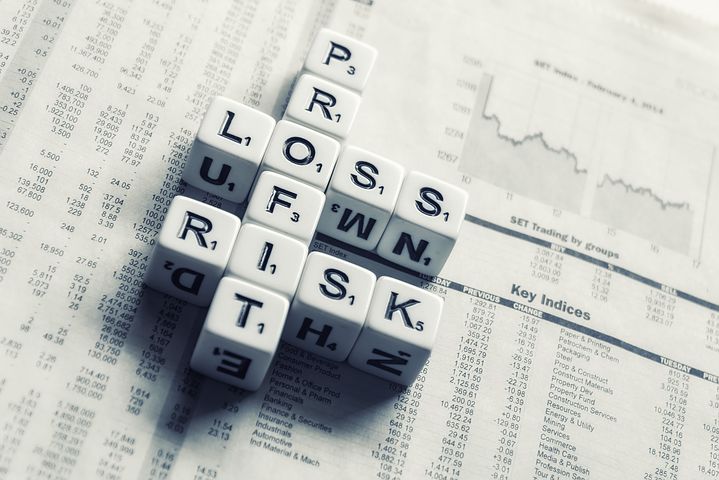

05.03.2019 – Daily report. The DAX started trading weakly on Shrove Tuesday, but then continued to recover slightly. Wall Street, too, didn’t know what it wanted the night before: A strong start was followed by a small sell-off, which finally led to a recovery from the daily low. Once again, China set the pace on the news front in volatile trade – the economic locomotive had to slow down. After all, the leadership is taking countermeasures, as it announced at the National People’s Congress.
No Clear Direction in Frankfurt
After an early minus of around 11,575 points, the German benchmark index gained a slight gain of 0.3 percent to around 11,620 points, before trading sideways. The calendar is rather thinly filled: After the end of trading, Deutsche Börse will announce the composition of its stock indices. No changes are expected for the DAX. The following data arrives from the USA at 16:00 : ISM Purchasing Managers’ Index Services and Sales of New Houses December (forecast 619K).
Strangle Course in New York
There was also little stimulus from Wall Street – it almost seems as if the brokers in New York had read our market report yesterday and, as a precautionary measure, made cash. Apart from profit taking to avoid any disappointment in the Chinese-American customs dispute, there was little to be heard in New York as a reason for the interim sale. But wait: disappointing construction spending dampened the mood on Wall Street.
After all, the indices recovered from their daily lows. The Dow Jones closed with a minus of 0.8 percent at 25,820 points. The S&P 500 and Nasdaq 100, which had initially marked fresh annual highs in early Monday trading, also fell. The S&P lost about 0.4 percent to 2793 points in the end. The Nasdaq 100 nevertheless caught on and recorded only a minimal minus of 0.01 percent to 7151 points. In Tokyo, however, the Nikkei closed 0.4 percent lower in the morning at 21,726 points.
Cold Shower from Beijing
Once again China provided the news of the day – and it turned out to be in line with trading without a clear trend. Prime Minister Li Keqiang was unusually pessimistic at the start of the annual meeting of the People’s Congress: he forecast economic growth of 6.0 to 6.5 percent for 2019. This is the lowest growth target for almost three decades – so China urgently needs a deal in the customs dispute with the USA.
In an unusually concrete way for a communist cadre, the prime minister spoke in front of around 3,000 delegates, as everyone already knew: China’s trade war with the United States had had a negative impact on the “production and business of many companies as well as market expectations”. Li also spoke of “increased downward pressure” on the Chinese economy. In addition, the growth rate of consumption is slowing down, investments are lacking in “driving force” and the real economy is encountering “difficulties”.
China Supports the Economy
China announced tax cuts and higher infrastructure spending. In addition, companies are to receive loans more easily. Top stocks from mainland China have risen accordingly: The CSI-300 index gained 0.6 percent to 3816.01 points on Tuesday. The question remains as to whether China will meet its gigantic challenges.
Ticking Time Bomb
An interesting footnote: China Evergrande, China’s largest project developer, has just lowered the price of its real estate by 10 percent. The reason: poor sales in January and a threatening cooling of the market.
At this point we had already told you about a hardly noticed danger for the Chinese People’s Republic. According to a sensational study by Professor Li Gan from November 2018, around 50 million apartments are vacant – which accounts for around 22 percent of the total market. Gan teaches economics at Texas A&M University and is also Director of the Survey and Research Center for China Household Finance at Southwestern University of Finance and Economics in Chengdu, China. The vacancies and the ghost towns are a ticking time bomb: if the sell-out begins, the construction sector will go down on its knees. With unforeseeable consequences for the economy as a whole and the world’s stock markets.
So it’s worth paying attention to what’s happening outside the media mainstream in order to be prepared for surprises in the market.
Important Notes on This Publication:
The content of this publication is for general information purposes only. In this context, it is neither an individual investment recommendation or advice nor an offer to purchase or sell securities or other financial products. The content in question and all the information contained therein do not in any way replace individual investor- or investment-oriented advice. No reliable forecast or indication for the future is possible with respect to any presentation or information on the present or past performance of the relevant underlying assets. All information and data presented in this publication are based on reliable sources. However, Bernstein Bank does not guarantee that the information and data contained in this publication is up-to-date, correct and complete. Securities traded on the financial markets are subject to price fluctuations. A contract for difference (CFD) is also a financial instrument with leverage effect. Against this backdrop, CFD trading involves a high risk up to the point of total loss and may not be suitable for all investors. Therefore, make sure that you have fully understood all the correlating risks. If necessary, ask for independent advice.
